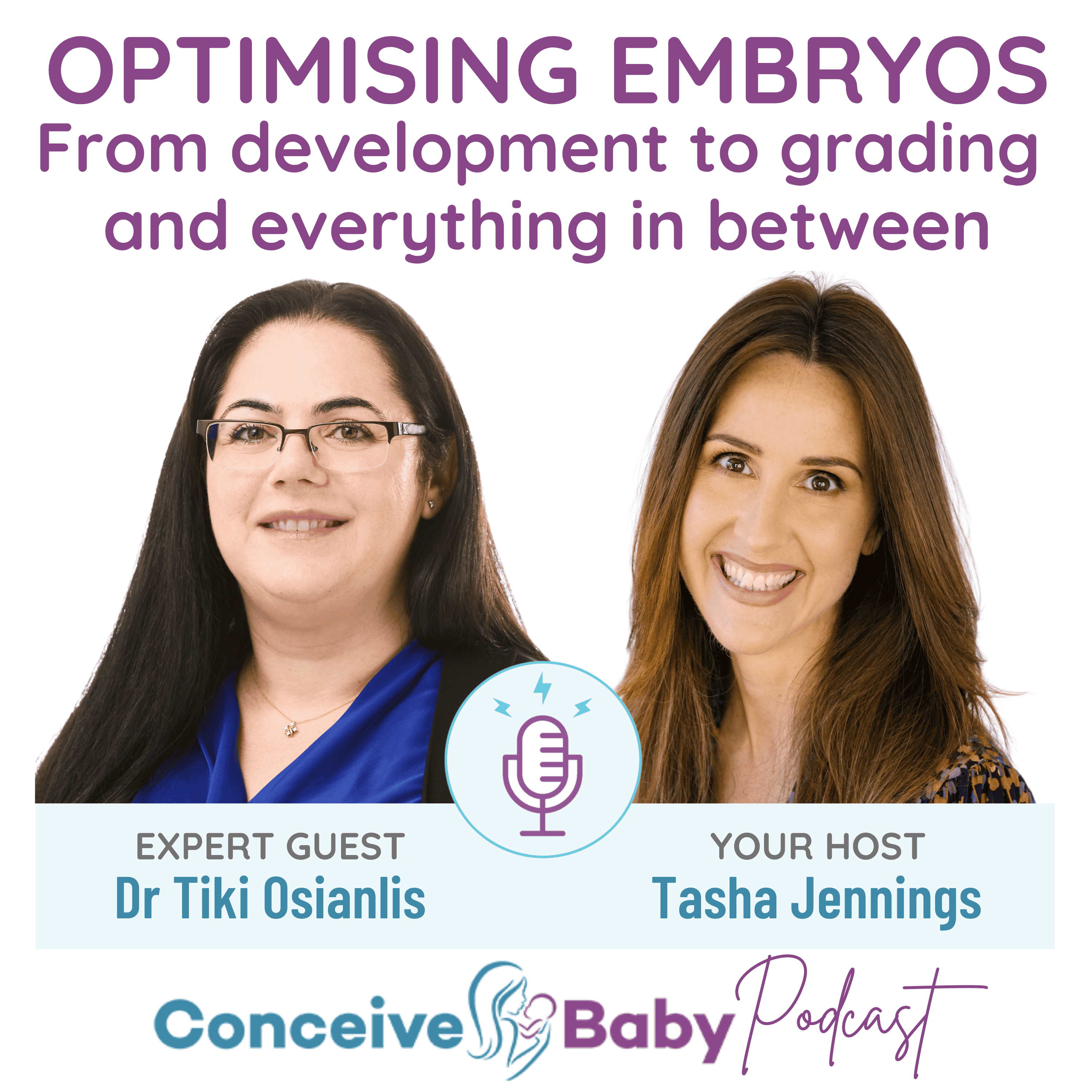
Episode Summary:
In this episode of the Conceive Baby Podcast, I speak with experienced embryologist Dr. Tiki Osianlis who shares her insights into embryo development.
If you’ve been with me for a while, you know I’m passionate about the crucial 90 days before ovulation, where we have the opportunity to really boost the health of your egg and sperm to optimise your chances of creating a healthy embryo and a healthy pregnancy.
In this episode we dive into what happens next in the context of an IVF cycle. When you’ve hopefully done some great preparation work, to create the healthiest egg and sperm you can, your eggs have been collected and fertilised and now you’re crossing your fingers, toes and anything else you can to see what happens next. And that’s what we cover right here.
What happens to those precious embryos as they develop in the lab? How are they graded and what does the grading mean? What’s the difference between transferring a day 3 embryo and a day 5 embryo? And what PGT Testing and mosaic embryos—how does that fit into the picture?
We’ll be diving into all these questions and more today, with Dr. Tiki Osianlis. Dr. Osianlis has been at the forefront of embryology for over 18 years now, working with some of Melbourne’s most renowned IVF providers.
She’s also an adjunct Senior Lecturer with Monash Health’s Department of Obstetrics & Gynaecology, where she enjoys guiding the next generation of researchers in the fields of sperm and egg interaction and embryo selection.
About the Guest(s):
Dr. Tiki Osianlis is a distinguished embryologist with over 18 years of experience in the field. She has been instrumental in advancing embryology in Melbourne’s leading IVF clinics. Dr. Osianlis also serves as an adjunct senior lecturer at Monash Health’s Department of Obstetrics and Gynaecology, where she mentors upcoming researchers in the domain of sperm and egg interaction and embryo selection. As the Scientific Director at Newlife IVF, Dr. Osianlis leads the charge in applying cutting-edge science and technology to reproductive care, ensuring patients receive the very best that modern embryology has to offer.
Key Takeaways:
- Understanding developmental stages and grading of embryos are crucial for IVF success, with expansion, inner cell mass, and trophectoderm quality all playing key roles.
- Egg quality significantly influences embryo development, highlighting the importance of healthy lifestyle choices prior to IVF cycles.
- Genetic testing of embryos, including insights on mosaic embryos, offers a window into chromosomal normalcy but must be evaluated on a case-by-case basis.
- Lifestyle factors, especially for male sperm health, can directly impact embryo viability and should not be underestimated.
- Open communication with embryologists can provide valuable insights for patients, offering clarity and empowerment throughout their IVF journey.
Notable Quotes:
- “Embryos do have their own developmental potential…every embryo has its own developmental potential.” – Dr. Tiki Osianlis
- “Egg quality is huge. And that also is one of the number one factors affecting IVF success.” – Dr. Tiki Osianlis
- “If the embryo is suitable for transfer or freezing, it means that the embryologist has deemed it a viable embryo and that’s the most important thing.” – Dr. Tiki Osianlis
- “And I do want to say that every embryologist that I’ve ever come across, and I’ve seen many of them, genuinely care about what they’re doing and they care so much about the patients.” – Dr. Tiki Osianlis
- “The embryos are always showing you something different.” – Dr. Tiki Osianlis
Resources:
